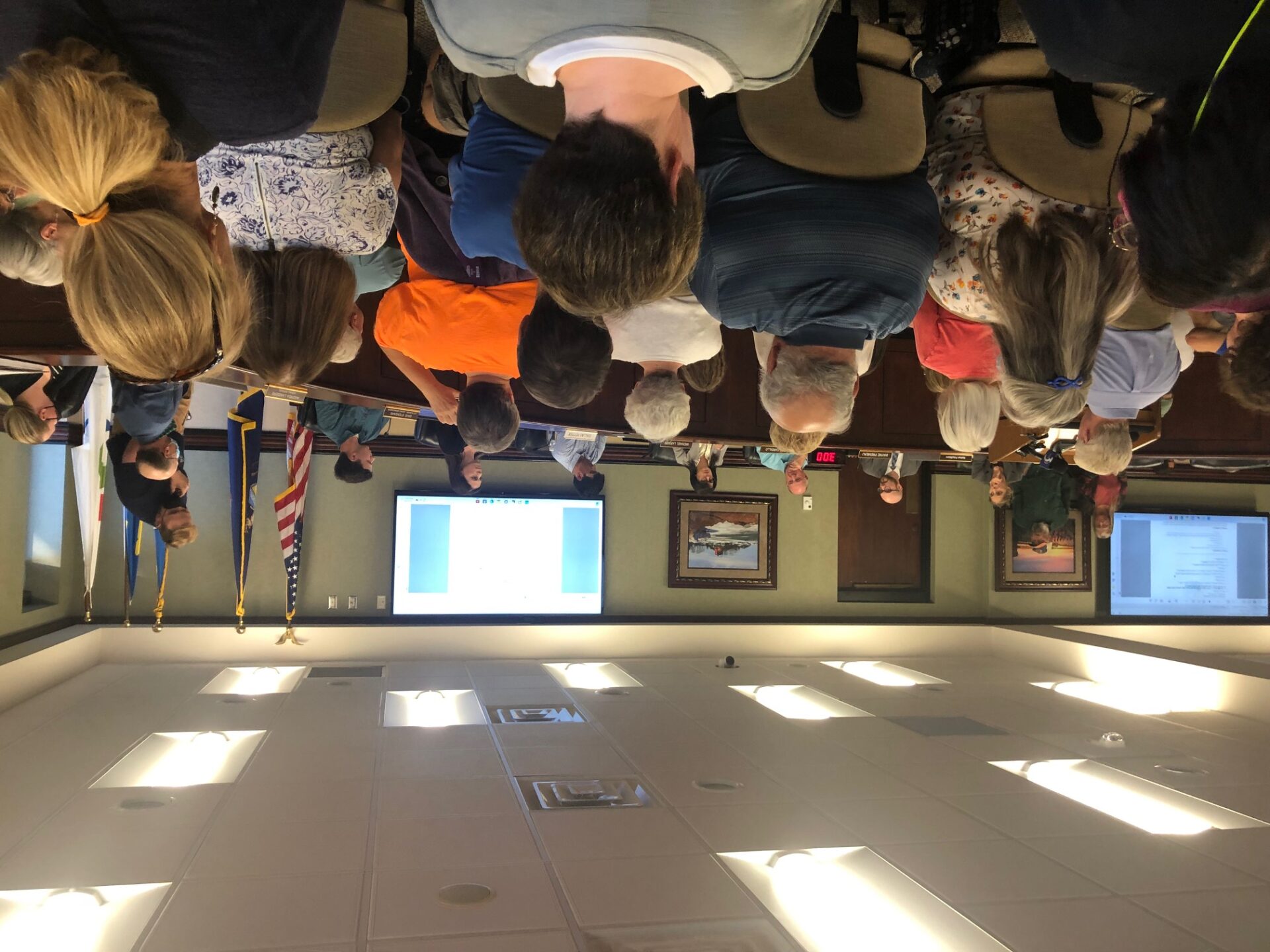IN A DECISION THAT may have surprised some, but not many, the Marquette Planning commission has denied a local developer’s application for a Special Land Use Permit to build a 4-story hotel, just off Lakeshore Boulevard, across from Picnic Rocks.
The action took place before a packed house Tuesday night in the Marquette Commission chambers. Planning Commission Chairperson Joy Cardillo commented that the crowd was the largest she had seen in her time on the board, and she didn’t even see it all. A considerable number of attendees had to listen to the meeting in the hallway when the meeting room reached capacity.
In addition to the dozens of citizens who addressed the commission during public comment, another 40 or so had submitted letters to be read aloud into the official record. By my count, no more than a total of two comments expressed support for the project. Local watchdog Margaret Brumm, a vocal opponent, had alerted the public to the meeting and encouraged a strong turnout… and she got it.
As written here last week, the Planning Commission was charged with making a decision based on whether or not the proposal satisfied the criteria of the special permit. Fourteen different conditions are included in the permit application, and, after listening to all the public comment, the commission took on each condition… one at a time.
Deciding whether or not the conditions had been met didn’t require the unanimity of the commission, but rather some sort of consensus. Regardless, a number of the conditions were deemed to be unsatisfied by the proposal, primarily those that dealt with the implications of having a 107 unit extended-stay hotel close to both a residential neighborhood and an already busy auto and pedestrian corridor.
Project architect and spokesperson Barry Polzin presented the nuts and bolts of the proposal, with very little crowd approval. We’ve got to hand it to Polzin. He puts himself out there, even in the face of what was expected to be intense opposition. At one point, after one of the speakers kept referring to the development representatives as the “suits,” a justly offended Polzin asked the speaker if he wanted to go outside to discuss the matter further… in so many words. That’s as far as it went though, as Cardillo did a good job keeping the crowd in check and the meeting moving… as much as possible.
With each speaker given 3 minutes, and the reading of all the letters, and every commissioner expected to comment on the 14 conditions, and occasional follow-up questions to city staff and the developers, and a 15 minute delay while the hallway audio was made operational…well, the final decision was made at 11:07 pm, at a meeting called to order at 6.
It was a long night, but no one can accuse the Planning Commission of cutting any corners as the evening wore on. Each of the application’s conditions was subjected to serious consideration, with the position of both the developers and the public given a fair shake. In fact, it was obvious that a couple of the commissioners had done their homework leading up to the meeting and were pretty well-versed in the possible implications if the request was approved.
In the end, a 5 to 2 vote scuttled the project, much to the delight of those who stuck around for the conclusion. Did the overwhelming public opposition influence the commissioners’ decision? Maybe. But it’s more probable that the public comments merely helped the commissioners decide whether or not the project was appropriate for the site… based on the requirements in the application. In other words, the decision-makers interpretation of the rules went by the book, but was likely aided by the opinions expressed in public comment.
This case illustrates the importance of the planning and zoning process, and how it deals with developments like this. The city’s Land Development Code is the guiding document the Planning Department uses to help shape the look and feel of the community. It’s under the umbrella of the Community Master Plan, which periodically comes up for review, and when it does, public input is a part of the process.
So, where does the development group go from here? They obviously think another hotel in Marquette is a sound economic investment… at least at the location they wanted. But, could the same hotel, a Hilton extended-stay facility, be successful somewhere other than the cherished lakefront. You would think. After all, visitors to the area typically don’t come for the hotel room. And if they do it right, they don’t spend much time there anyway. So, yes, this could work somewhere else… somewhere more appropriate for the comings and goings of busy hotel.
A day off for restaurant staff
Going out to eat? You may want to make sure your favorite restaurant will be open. Apparently a number of our local establishments will be closed tomorrow (Saturday) ostensibly to give their employees a well-deserved day off, before the end of summer. Skeptics among us might suggest that these local spots are keeping their doors shut tomorrow so their staffs won’t have to deal with the hundreds of U.P. Fall Beer Festival attendees who will be flooding the streets once the taps stop flowing at the festival.
If you’ve ever been downtown at the conclusion of this annual drink-a-thon, you’ll understand their motivation, or at least my suggestion of it. Restaurant guests these days are already pushing the limits of civility. Pour beer down their throats for five hours and they usually don’t behave any better. The beer festival is a great event. Dealing with the aftermath… not so much.


